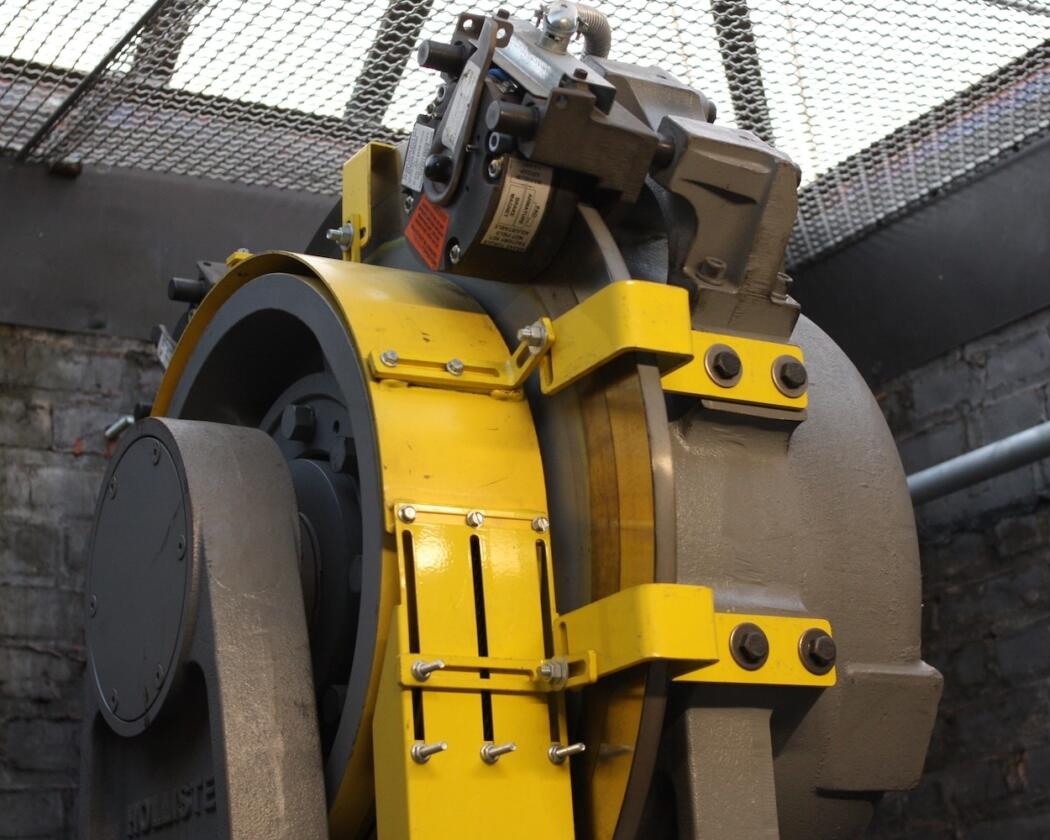
“A nice long runway”
An energy audit sets a ten-year path for compliance and savings at a Jackson Heights co-op
The Madison’s elevator controller. Photo: Sunny Nagpaul
As any New York homeowner can attest, overhauling any major building system is sure to be expensive. And co-op shareholders at the Madison, like many other co-ops around the city, are sharply attentive to managing costs. That’s why, when the building’s board leadership decided to invest in energy efficient upgrades, they cared about more than just complying with the city’s local energy laws — they wanted to shore up the physical and financial future of their home and asset, along with getting good value. But to do any significant upgrades, the building needed a plan.
The Jackson Heights co-op was built in the late 1930s, and with the help of the building’s management company underwent a number of small-to-moderate efficiency upgrades over the past several years, mostly driven by a desire to save money and modernize the building. But the looming carbon emission standards laid out by Local Law 97 (LL97) have forced the building’s board to think about upgrades on a different time scale. It’s likely they’ll have to take on projects over the next several decades, so board president Michael Parrella has been working to create a culture where shareholders are “proactively managing our building and looking ahead, rather than waiting for the next thing to break and then respond to that.”
As a housing cooperative, board members and shareholders need to reach agreements on finances before making big capital investments. Uniting the shareholders, Parrella said, requires “lots of education” on how much energy efficiency projects cost, anticipated cost-savings, and why they are needed. So in the late summer of 2023, he hired Bright Power, an energy solutions provider, to run an energy audit to analyze their building, assessing its energy systems like the boiler and hot water heaters, windows and potential draft spots, and lighting.
It was a way to understand the building’s starting point, and offered a view towards the future: Hard figures to describe future changes needed to avoid LL97 fines, and the financial savings those investments could bring. But the biggest benefit the audit offered was time: It revealed that the Madison would be free of fines from the local law until 2035, giving them “a nice, long runway” to plan for larger capital improvements, according to Parrella.
The Bright Power audit recommended that the Madison replace its windows for better insulation, and eventually replace its boiler — projects that are likely to cost a few million dollars over several years. The board plans to take advantage of the long runway by launching an education campaign for shareholders, to explain the need to fund and finance more efficient technology projects.
To the central question of how to raise large sums of capital, no firm decisions have been made yet. “We’ve laid out a couple of ideas for shareholders, and the numbers are significant,” Parrella said. Among the tools at their disposal are levying assessments to build up their capital reserve, and refinancing the mortgage to access more credit. They’re also looking into the various state and federal tax credits available for clean energy projects that could offset money shareholders spend in increased assessments.
One complicating factor, however, is that the multi-year timeline for large-scale retrofits described by the audit is much longer than the tenure of the board, which is re-elected every year.
Still, the ten-year runway before the building must comply with LL97 is a big help when it comes to planning the money element of these expensive improvements — it affords the cooperative the time to map out the big changes they’ll need to make to finance these projects. This year, the board has begun developing timelines to complete the anticipated window and boiler projects that are likely to extend well into the future.
“[Local Law 97] is unlike any other in that it has such a long time frame. Most folks don’t plan their lives in that type of time frame. So this law really encourages co-ops to be a bit more proactive,” said Parrella. “[The law] was passed six years ago, but most co-ops have not made plans for it. Why? The deadlines are far enough out that I think they think it’s not a big deal, but eventually it’s going to start to hit people.”
